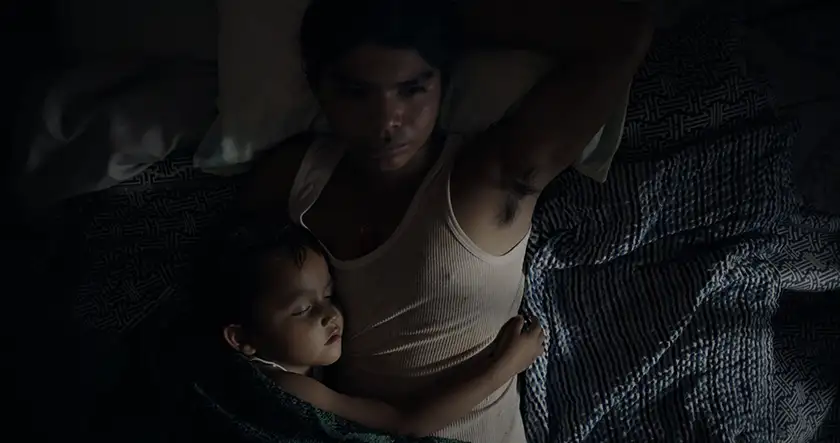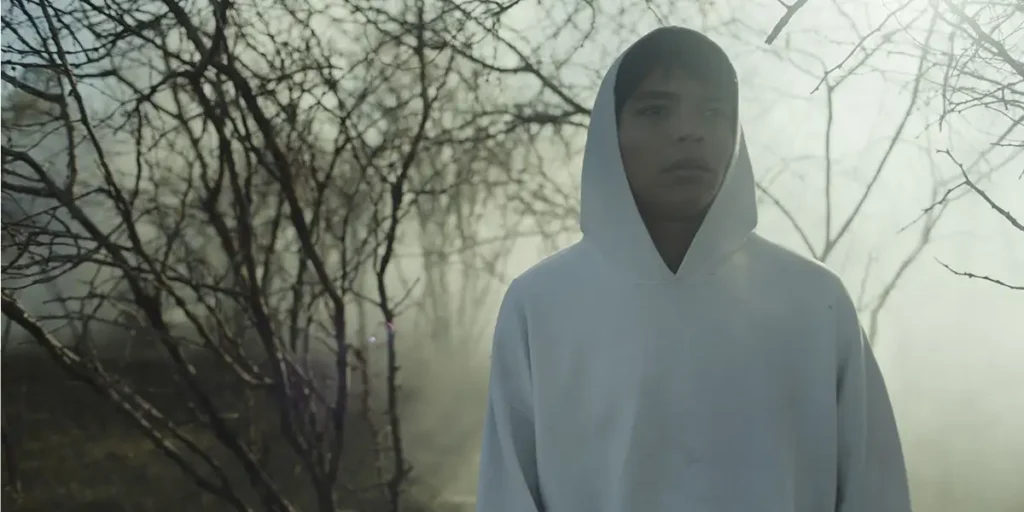The impressive visuals and intoxicating atmosphere of Sujo are ultimately overshadowed by a surprisingly slight and scattered narrative.
Writers and Directors: Astrid Rondero & Fernanda Valadez
Genre: Drama
Run Time: 125′
BFI London Film Festival Screening: October 16-19, 2024
U.S. Release Date: TBA
U.K. Release Date: December 13, 2024 in cinemas
Directors / writers Astrid Rondero and Fernanda Valadez inject the same mesmerising atmosphere and precise framing into Sujo as they did in their feature debut, Identifying Features. But where that 2020 film provided a haunting look at immigration and cartel violence in Mexico via a loose but effective narrative, Sujo struggles to match its dramatic and character-driven elements. It runs at 125 minutes—30 minutes longer than Identifying Features—and the length, whilst by no means long, lends Sujo a scattered approach.
Rondero and Valadez’s eye for a memorable image can’t be disputed, but their handling of a promising narrative is surprisingly uneven.
We first meet the titular character of Sujo as a four-year-old, played in these early scenes by Kevin Aguilar. His young father, a member of a drug cartel in rural Mexico, is branded a traitor by his fellow members and subsequently murdered. Sujo is also marked, but an agreement made by his aunt, Nemesia (Yadira Pérez, Mujeres del Alba), with the cartel boss saves his life. Nemesia promises to keep Sujo out of the town for the rest of his life, consigning him to an isolating existence in her small hut.
The way Rondero and Valadez conduct these early scenes is mesmerising; the matter-of-fact, subtle camerawork enhances the domestic life we witness, which in turn makes the cartel’s influence that much more distressing. The destruction that surrounds the town is bleak, slow, and most shockingly, inevitable. As Sujo grows into a teenager, played by Juan Jesús Varela (Identifying Features), his isolation grows, with the near-silent atmosphere of Sujo enforcing this suffocating loneliness. Along with his friends from town, Jai (Alexis Varela) and Jeremy (Jairo Hernandez), Sujo becomes increasingly restless, and the cartel’s pull begins to work on the three boys. The organisation’s members are also generally faceless, ramping up the underlying but very apparent threat that lurks around every street corner.

This is where Sujo first truly falters: as a young man, Sujo is a frustratingly blank book. His character isn’t nearly as compelling as you’d expect, although his journey to avoid a life of crime is uplifting. Jai and Jeremy are similarly lacking, only existing to propel Sujo’s story forward. The fact that Sujo is broken up into chapters focussing on specific characters makes this lack of depth even more surprising, as the character work is nowhere near deep enough to justify having this structure. Sujo avoids the pitfalls of reducing the harm of drug cartels by overly dramatising it, but the character study it seems to aspire to be is never realised.
Whilst it is hypnotic in its earlier stages, with a dreamlike allure backed up by the atmospheric buzz of the rural environment, Sujo ultimately feels too sparse, eventually losing narrative impetus and never finding it again. This is surprising, considering Identifying Features managed to be similarly subtle in form but wholly effective as a character study and thematic commentary. In contrast, Sujo can be testingly slow, sharing the impressive visuals and restrained direction of Rondero and Valadez’s debut, but not having the depth to back it up. There are hints of greatness buried within Sujo, but they get sidelined by ineffective drama, a narrative that lacks tempo, and weak characters.
Sujo will be screened at the BFI London Film Festival on October 16-19, 2024 and will be released in cinemas in the UK on December 13, 2024.

